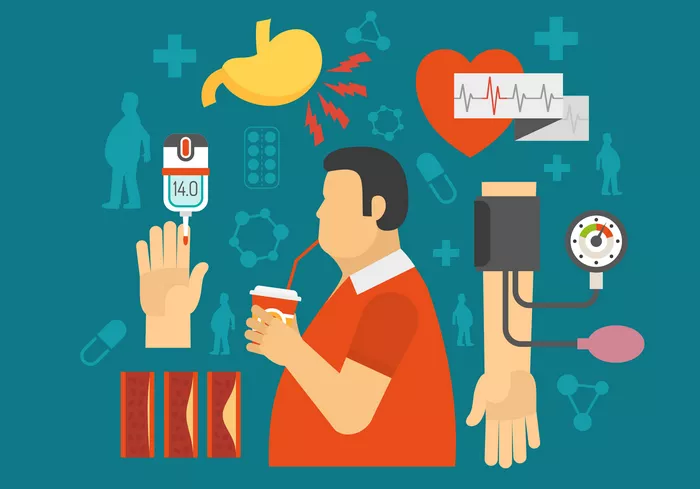Maintaining healthy blood sugar levels is essential for overall well-being, particularly for individuals with diabetes or those at risk of developing the condition. Diet plays a crucial role in blood sugar control, and understanding how different foods affect blood sugar levels is key to managing this aspect of health effectively. In this guide, we’ll explore various dietary strategies to help lower and stabilize blood sugar levels, including the importance of blood sugar control, the concept of glycemic index (GI), foods with a low GI, fiber-rich foods, protein-rich foods, healthy fats, hydration, portion control, limiting sugary and processed foods, and the significance of consulting with healthcare professionals for personalized guidance.
Blood Sugar Control
Blood sugar, or glucose, is the primary source of energy for the body’s cells. It comes from the foods we eat, particularly carbohydrates, which are broken down into glucose during digestion. However, maintaining blood sugar levels within a healthy range is crucial for overall health. High blood sugar levels, known as hyperglycemia, can lead to complications such as diabetes, heart disease, and nerve damage. Conversely, low blood sugar levels, known as hypoglycemia, can cause symptoms like weakness, dizziness, and confusion. For individuals with diabetes or those at risk of developing the condition, managing blood sugar levels is especially important to prevent complications and maintain quality of life.
Understanding Glycemic Index (GI)
The glycemic index (GI) is a scale that ranks carbohydrate-containing foods based on how quickly they raise blood sugar levels. Foods with a high GI are digested and absorbed quickly, causing rapid spikes in blood sugar levels. In contrast, foods with a low GI are digested and absorbed more slowly, resulting in gradual increases in blood sugar levels. Choosing foods with a low GI can help stabilize blood sugar levels and prevent sharp fluctuations, making them beneficial for individuals with diabetes or those aiming to manage blood sugar levels effectively.
Foods with Low Glycemic Index
Several foods have a low glycemic index and are therefore considered beneficial for lowering and stabilizing blood sugar levels. These include:
Non-starchy vegetables: Leafy greens, broccoli, cauliflower, bell peppers, and cucumbers.
Legumes: Lentils, chickpeas, black beans, kidney beans, and edamame.
Whole grains: Oats, quinoa, barley, bulgur, and brown rice.
Nuts and seeds: Almonds, walnuts, chia seeds, flaxseeds, and pumpkin seeds.
Berries: Strawberries, blueberries, raspberries, and blackberries.
Incorporating these foods into meals and snacks can help promote better blood sugar control and overall health.
Fiber-Rich Foods
Foods high in fiber play a crucial role in blood sugar management. Fiber helps slow down the absorption of glucose into the bloodstream, preventing rapid spikes in blood sugar levels. It also promotes satiety, helping individuals feel full for longer periods and reducing the risk of overeating. Examples of fiber-rich foods include fruits (such as apples, oranges, and pears), vegetables (such as carrots, Brussels sprouts, and sweet potatoes), whole grains (such as whole wheat bread, oats, and barley), and legumes (such as beans, lentils, and peas).
Protein-Rich Foods
Protein is another essential nutrient for blood sugar management. Protein-rich foods help promote satiety, stabilize blood sugar levels, and support muscle health. Incorporating lean sources of protein into meals and snacks can help individuals feel satisfied and prevent overeating. Examples of protein-rich foods include poultry (such as chicken and turkey), fish (such as salmon and tuna), tofu, tempeh, eggs, dairy products (such as Greek yogurt and cottage cheese), and legumes (such as beans, lentils, and chickpeas).
Healthy Fats
Incorporating healthy fats into the diet can help slow down the absorption of carbohydrates and prevent rapid spikes in blood sugar levels. Healthy fats also provide essential nutrients and promote satiety. Examples of healthy fats include avocados, nuts (such as almonds, walnuts, and pistachios), seeds (such as chia seeds, flaxseeds, and hemp seeds), olive oil, coconut oil, and fatty fish (such as salmon and sardines). It’s important to consume healthy fats in moderation as part of a balanced diet.
Hydration
Staying hydrated is essential for overall health and blood sugar management. Dehydration can lead to higher blood sugar levels, as the body may produce more glucose to compensate for fluid loss. Drinking plenty of water throughout the day can help prevent dehydration and support optimal blood sugar control. Limiting the consumption of sugary beverages such as sodas, energy drinks, and fruit juices is also important for blood sugar management.
Portion Control
Practicing portion control and mindful eating is crucial for managing blood sugar levels effectively. Paying attention to portion sizes can help prevent overeating and control calorie intake, which is essential for weight management and blood sugar control. Aim to fill half of your plate with non-starchy vegetables, one-quarter with lean protein, and one-quarter with whole grains or starchy vegetables. Avoid oversized portions and listen to your body’s hunger and fullness cues.
Limiting Sugary and Processed Foods
Sugary and processed foods can cause rapid spikes in blood sugar levels and should be limited in the diet, especially for individuals with diabetes or those aiming to manage blood sugar levels effectively. These foods often contain added sugars, refined carbohydrates, and unhealthy fats, which can contribute to poor blood sugar control and increase the risk of complications. Examples of sugary and processed foods to limit include sugary snacks (such as candies, cookies, and pastries), sugary beverages (such as sodas, sports drinks, and sweetened teas), white bread, white rice, and packaged snacks.
conclusion
Optimizing blood sugar levels through diet is essential for overall health, particularly for individuals with diabetes or those at risk of developing the condition. By incorporating foods with a low glycemic index, fiber-rich foods, protein-rich foods, healthy fats, staying hydrated, practicing portion control, limiting sugary and processed foods, and consulting with healthcare professionals, individuals can effectively manage blood sugar levels and improve their quality of life.
Related Topics:
What Is A Good Glucose Level In The Blood?

























